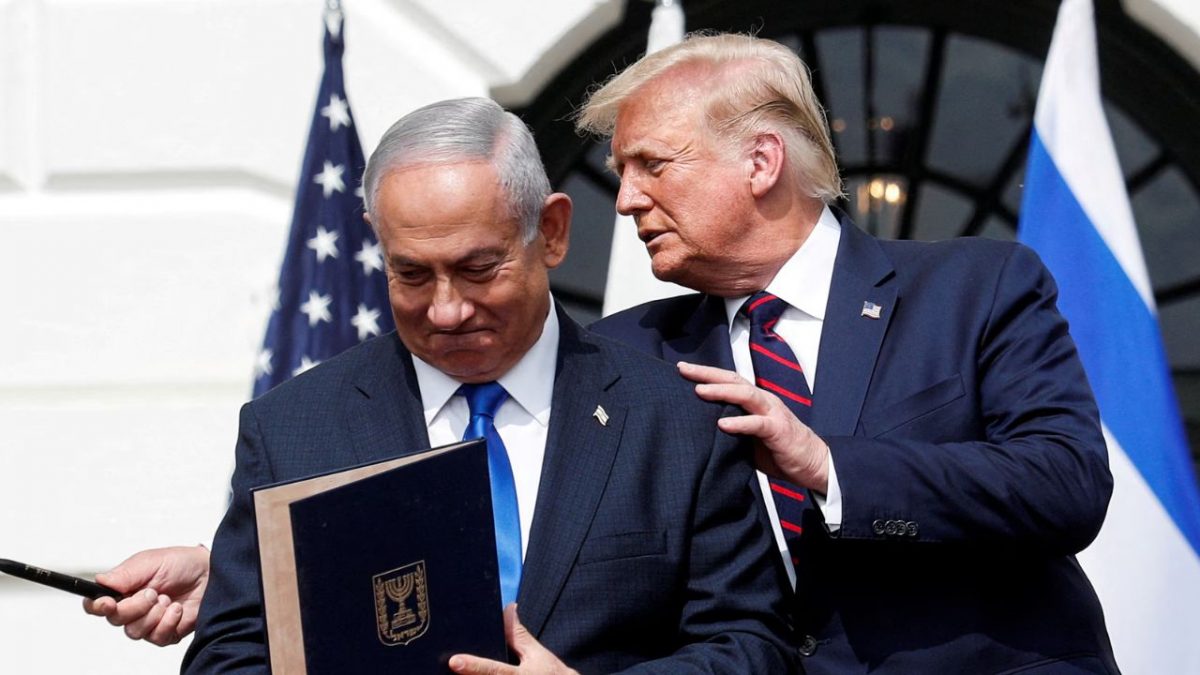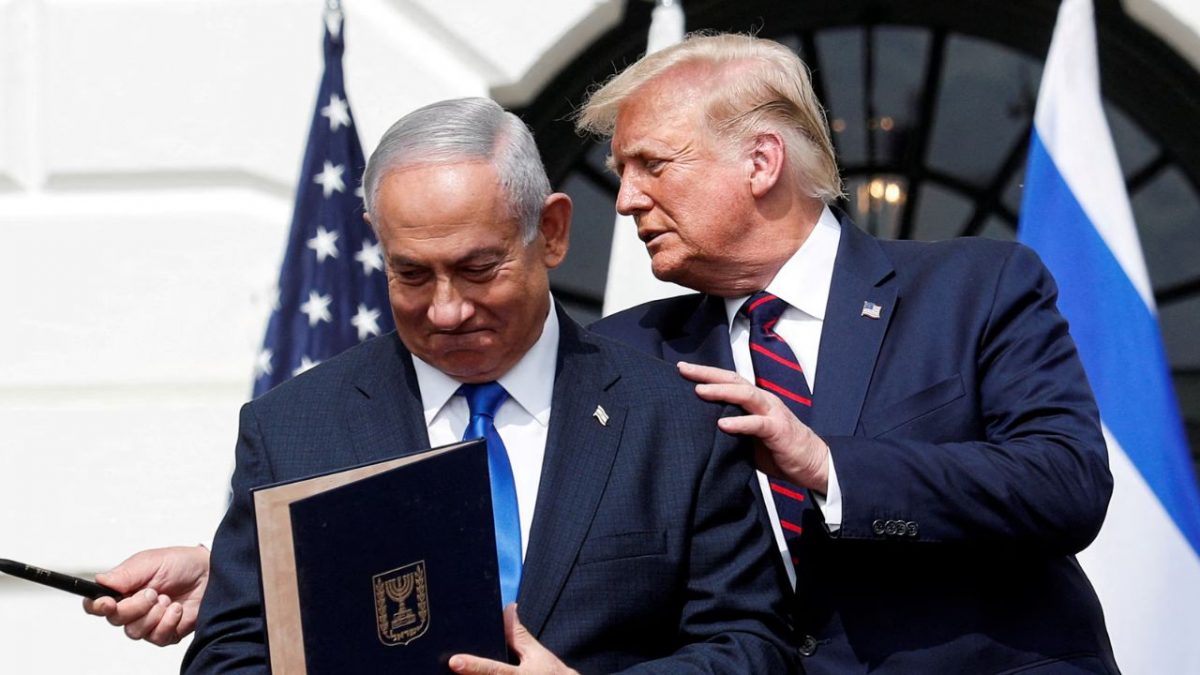United States President Donald Trump is reportedly exploring the possibility of serving a third term, despite the constitutional ban set by the 22nd Amendment.
In a recent interview with NBC News, Trump was asked directly about the prospect, and while he acknowledged that it was too early to make any firm decisions, he also stated that “there are methods which you could do it.”
Trump, who began his second term in 2025 after defeating Joe Biden in the 2024 election, has been known to raise the idea of extending his presidency.
While his previous references to serving beyond two terms have often been dismissed by Republicans as jokes, this time, he made it clear that he was serious. “I’m not joking,” he stated emphatically.
“A lot of people want me to do it,” Trump said. “But, I mean, I basically tell them we have a long way to go, you know, it’s very early in the administration.”
When pressed for details, Trump mentioned that one possible method could involve his vice president, JD Vance, running for president in 2028 and then stepping down after taking office.
“That’s one,” he acknowledged before adding, “But there are others, too.” However, he refused to elaborate further.
What constitutional roadblocks does Trump face?
The 22nd Amendment to the US Constitution, ratified in 1951, explicitly limits a president to two terms in office. This amendment was introduced after Franklin D Roosevelt won four consecutive terms, serving from 1933 to 1945.
Under the amendment, no person can be “elected” to the presidency more than twice, and no one who has served more than two years of another president’s term may be elected more than once.
To repeal the 22nd Amendment would be an arduous process requiring either a two-thirds majority vote in both the House and the Senate or a constitutional convention initiated by two-thirds of US states.
In either case, any proposed amendment would then need to be ratified by three-quarters of the states — a scenario that experts say is highly unlikely given the current political landscape.
Despite this, there has been some support within the Republican Party for extending presidential term limits. In early 2025, Representative Andy Ogles of Tennessee introduced a resolution proposing an amendment that would allow a president to serve up to three terms, provided they were not consecutive.
Under this proposal, former Presidents Barack Obama, George W Bush, and Bill Clinton would still be ineligible to return to office, while Trump — who served non-consecutive terms — would qualify to run again in 2028.
However, this resolution has little chance of gaining the bipartisan support necessary for passage.
What is the vice-presidential loophole?
Some legal experts have pointed out a potential loophole in the wording of the 22nd Amendment. While it explicitly states that a president cannot be “elected” more than twice, it does not prohibit a former two-term president from assuming the office through succession.
This has led to speculation that Trump could return to power by running as a vice-presidential candidate in 2028. If his running mate were to win and then resign shortly after taking office, Trump could ascend to the presidency once again.
However, constitutional scholars argue that this approach would likely face legal challenges. The 12th Amendment states that “no person constitutionally ineligible to the office of president shall be eligible to that of vice-president of the United States.”
This suggests that if Trump is barred from serving a third term as president, he may also be ineligible to run for vice president.
Notre Dame law professor Derek Muller has weighed in on the issue, telling AP, “I don’t think there’s any ‘one weird trick’ to getting around presidential term limits.”
He and other legal experts believe that any attempt to use the vice presidency as a backdoor route to a third term would almost certainly be challenged in court.
The conservative-leaning Supreme Court would likely have the final say on the matter. If Trump were to pursue this strategy, the Court would be forced to interpret whether the constitutional prohibition against being “elected” applies to an individual assuming the presidency through succession.
Some legal analysts believe the Court could uphold the strict wording of the 22nd Amendment, while others argue that it might focus on the intent behind the amendment — preventing any president from serving beyond two terms.
What has the reaction been to Trump’s comments?
Trump’s remarks have sparked a strong response from both supporters and critics. Some within his base have embraced the idea of extending his presidency, while others within the Republican Party have distanced themselves from any notion of altering the Constitution.
Former White House strategist Steve Bannon recently predicted that Trump would find a way to run again in 2028. “We’ll have a couple of alternatives,” Bannon said in an interview with News Nation, suggesting that pathways exist for Trump to remain in power beyond his current term.
However, other Republicans have publicly dismissed the idea. Senator Markwayne Mullin of Oklahoma has stated that he would not support amending the Constitution to allow a third term. “I’m not changing the Constitution, first of all, unless the American people choose to do that,” Mullin told NBC.
Meanwhile, Trump has continued to make references to extending his presidency, often in ways that appear to blur the line between humour and serious political ambition.
In February, he posted a message on Truth Social celebrating his executive order that reversed New York City’s congestion pricing plan, writing: “LONG LIVE THE KING!”
Shortly after, the White House amplified his statement by sharing an image of Trump wearing a golden crown on a fake magazine cover, reinforcing the perception that he sees himself as a leader without term limits.
Also Watch:
The debate over a third term comes at a time when Trump’s presidency has already defied many political norms. After losing re-election in 2020, he returned to power in 2024, making him only the second US president in history to serve non-consecutive terms, after Grover Cleveland.
With inputs from agencies


)
)
)
)
)
)
)
)
)



